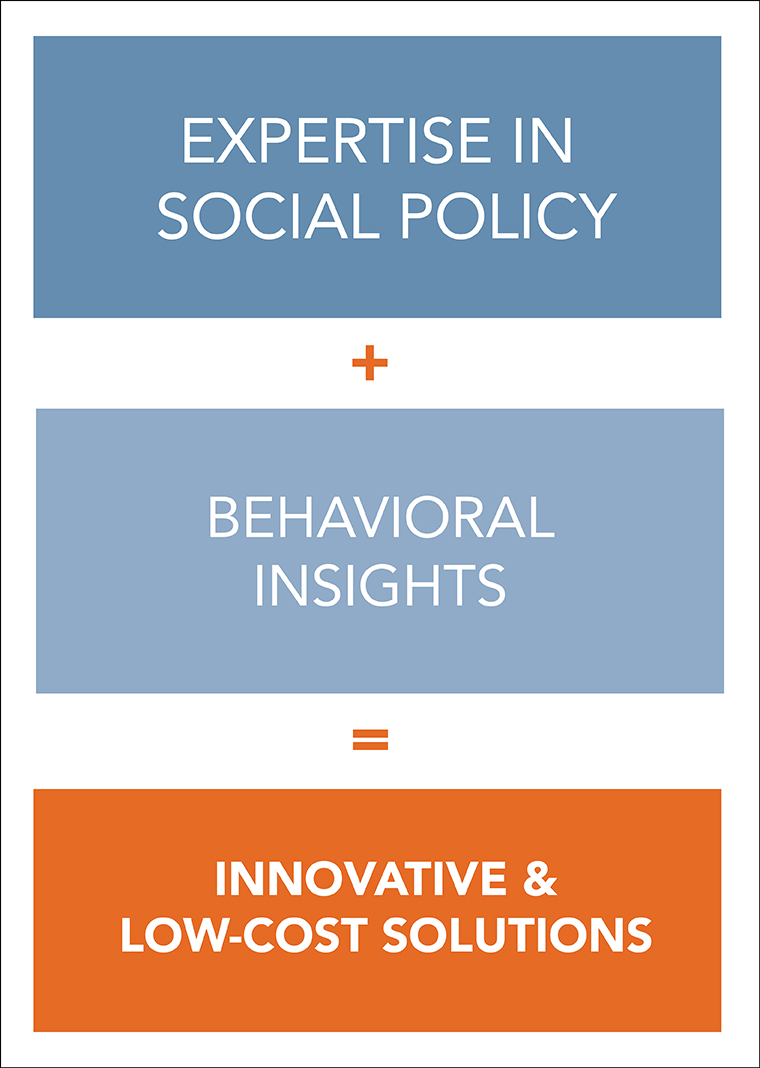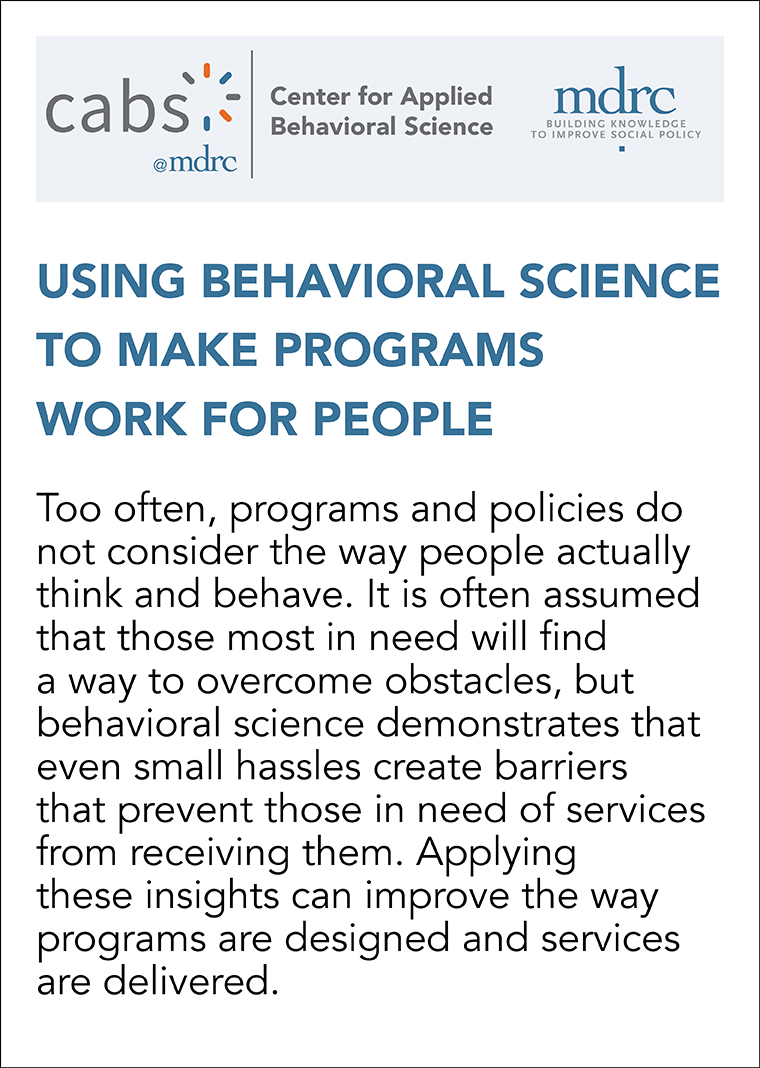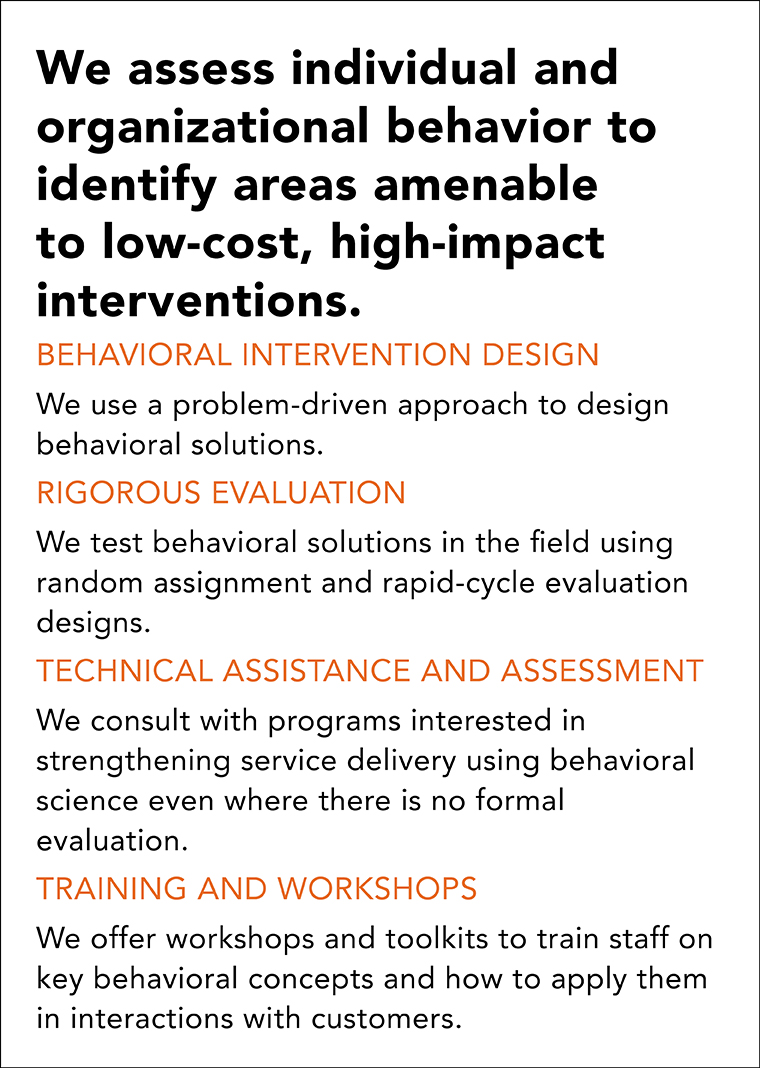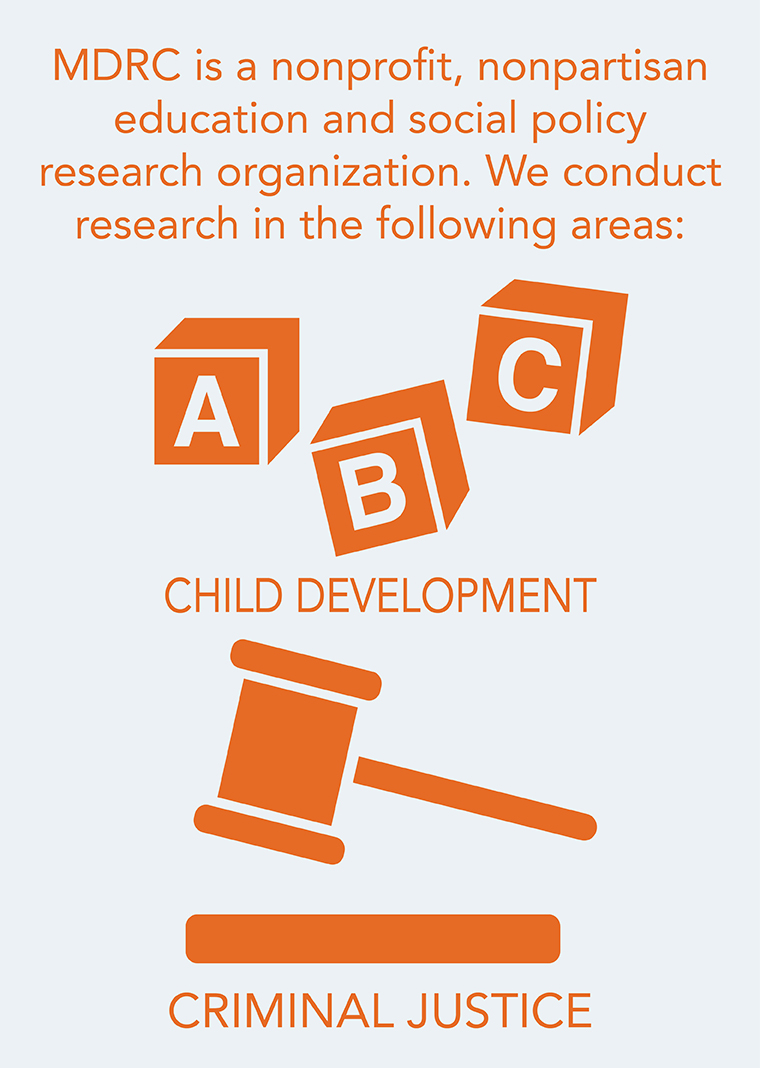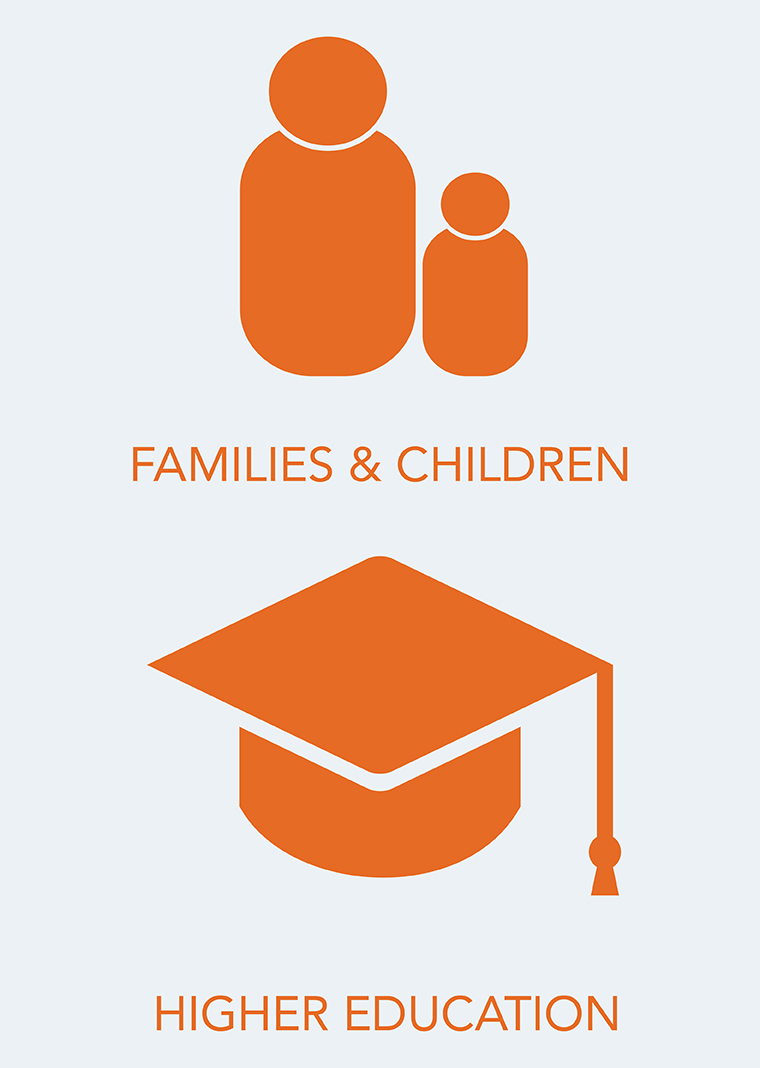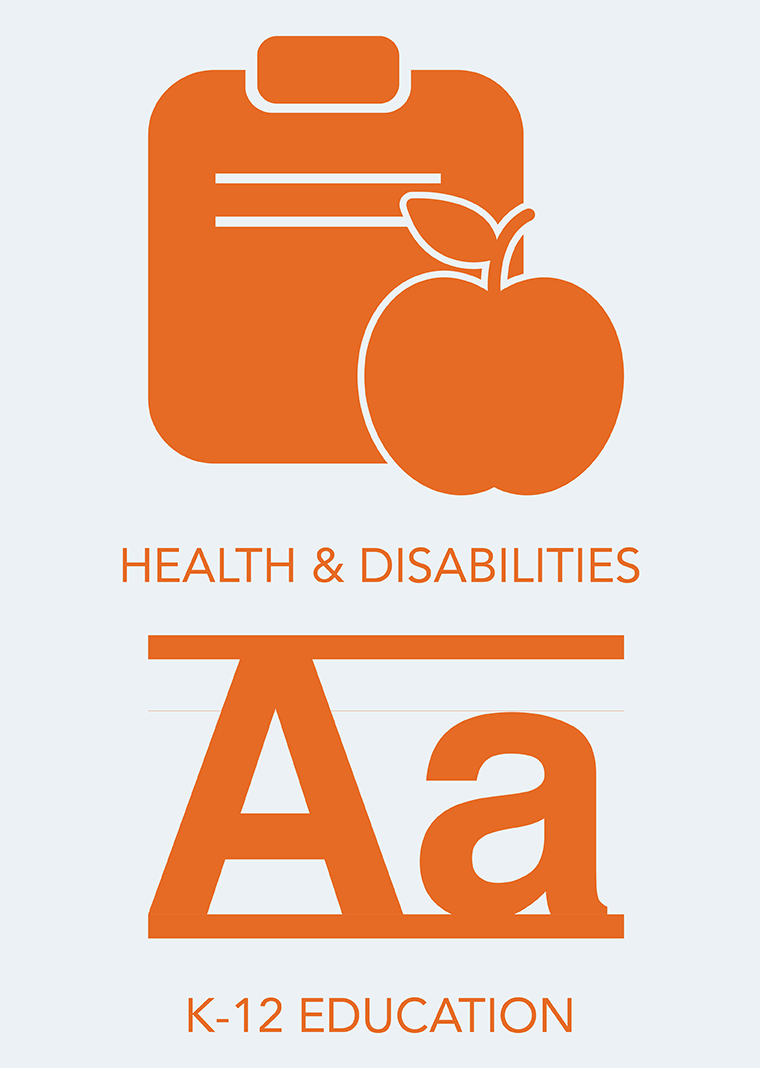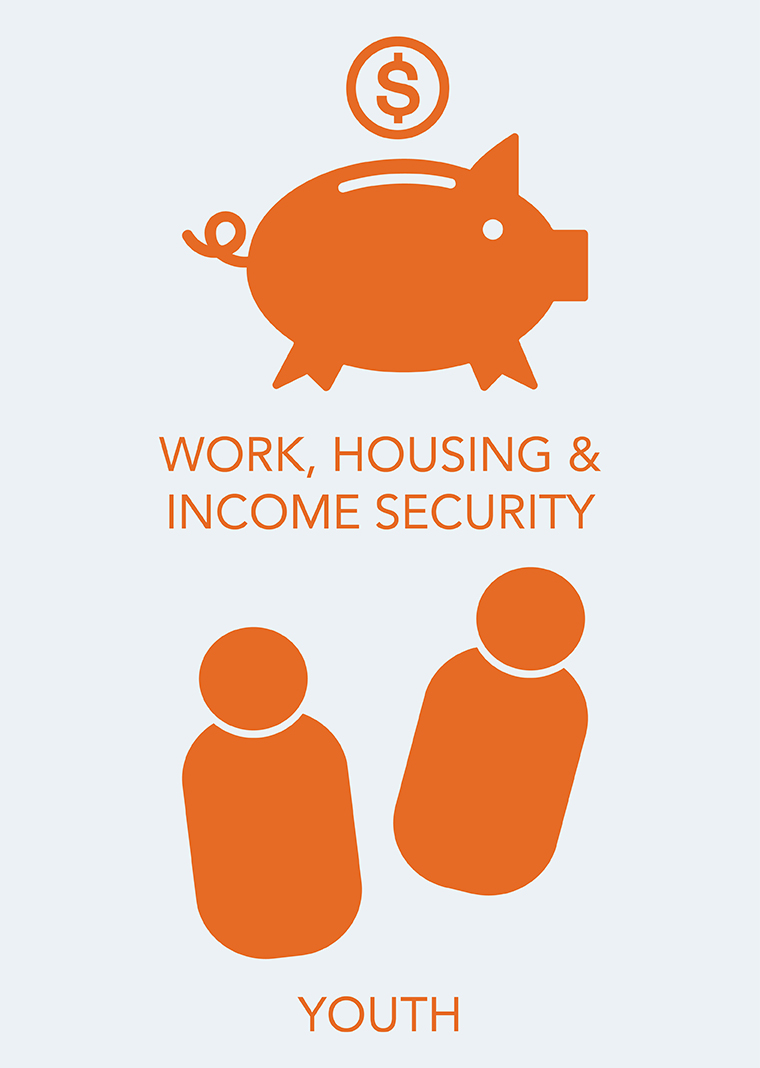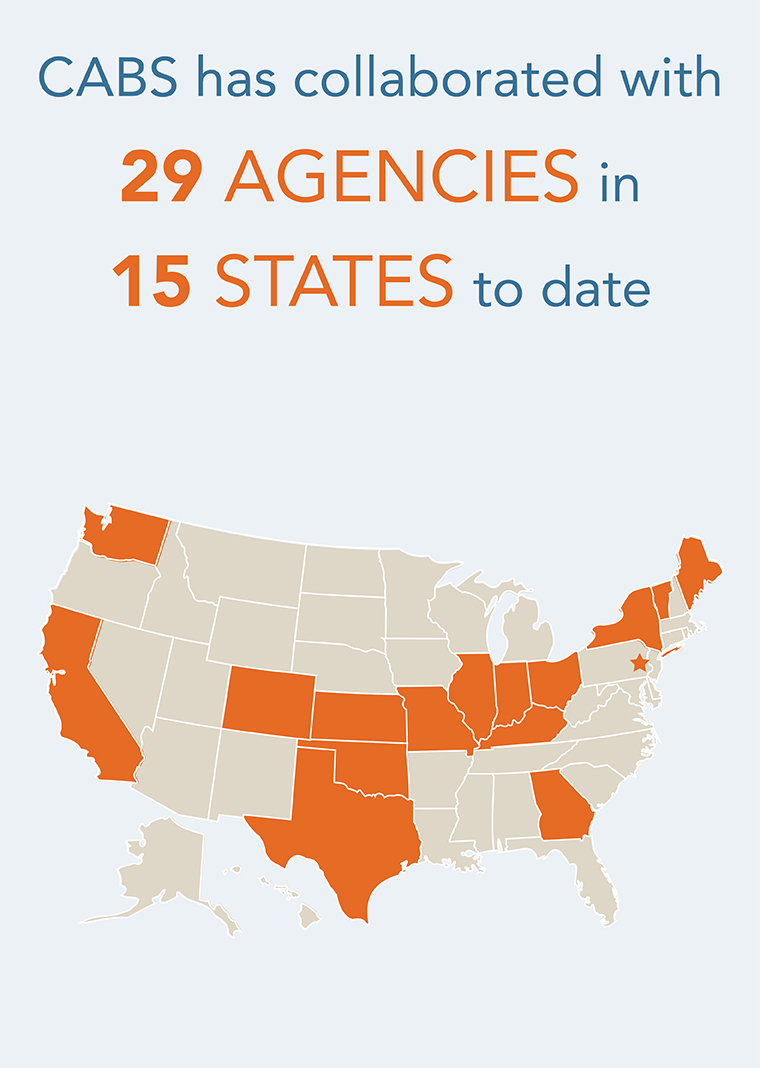Center for Applied Behavioral Science
USING BEHAVIORAL SCIENCE TO MAKE PROGRAMS WORK FOR PEOPLEToo often, programs and policies do not consider the way people actually think and behave. It is often assumed that those most in need will find a way to overcome obstacles, but behavioral science demonstrates that even small hassles create barriers that prevent those in need of services from receiving them. Applying these insights can improve the way programs are designed and services are delivered. |
We assess individual and organizational behavior to identify areas amenable to low-cost, high-impact interventions. BEHAVIORAL INTERVENTION DESIGN RIGOROUS EVALUATION TECHNICAL ASSISTANCE AND ASSESSMENT TRAINING AND WORKSHOPS |
Behavioral Projects in the Spotlight at MDRC
ENCOURAGING ADDITIONAL SUMMER ENROLLMENT (EASE)
Launched in 2016, the Encouraging Additional Summer Enrollment (EASE) Project is an initiative to improve community college persistence and completion. The project applies insights from behavioral science to design targeted messaging and financial incentives that encourage students to enroll in courses during the summer term. In the United States, institutions of higher education largely follow a schedule that promotes fall and spring enrollment but presents summer enrollment as an option. Meanwhile, only 20 percent of students at public two-year colleges graduate within three years. Many students enroll part time or inconsistently — frequently taking semesters off — which can increase the time it takes to graduate. One promising strategy to reduce students’ time to degree may be to encourage them to enroll continually, including during the summer, which may benefit students in multiple ways.
Funded by Great Lakes Higher Education Corporation
BEHAVIORAL INTERVENTIONS TO ADVANCE SELF-SUFFICIENCY — NEXT GENERATION (BIAS-NG)
The original Behavioral Interventions to Advance Self-Sufficiency (BIAS) project was the first major effort to bring a behavioral research lens to programs that serve poor families in the United States. It applied insights from behavioral science to the operations, implementation, and structure of social service programs and policies in an attempt to improve their efficacy. The project launched 15 random assignment tests with nearly 100,000 sample members in Texas, Ohio, New York, Oklahoma, Indiana, California, and Washington.
Launched in 2015, BIAS-NG builds on the original BIAS project to include a wider range of social service programs, to go beyond testing simple changes like “nudges” and test larger changes to program design and function, and to develop tools to help program administrators apply lessons from behavioral science to their work.
Funded by the federal Office of Planning, Research and Evaluation of the Administration for Children and Families in the U.S. Department of Health and Human Services
BEHAVIORAL INTERVENTIONS FOR CHILD SUPPORT SERVICES (BICS)
Launched in 2014, the project aims to apply insights from behavioral science to child support contexts, to develop promising interventions based on behavioral science, and to build a culture of regular, rapid-cycle evaluation and critical inquiry within the child support community. Agencies in California, Colorado, the District of Columbia, Georgia, Ohio, Texas, Vermont, and Washington are exploring the application of behavioral science to their child support services. Interventions aim to increase parental engagement in establishing orders, create more evidence-based orders, facilitate the order modification process, and encourage regular payments.
Funded by the federal Office of Child Support Enforcement of the Administration for Children and Families in the U.S. Department of Health and Human Services
For more information, email the CABS team at BE.info@mdrc.org
Follow us on Twitter @CABS_MDRC










